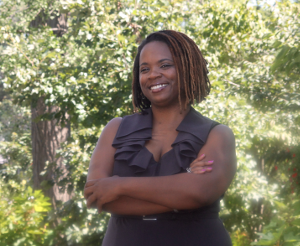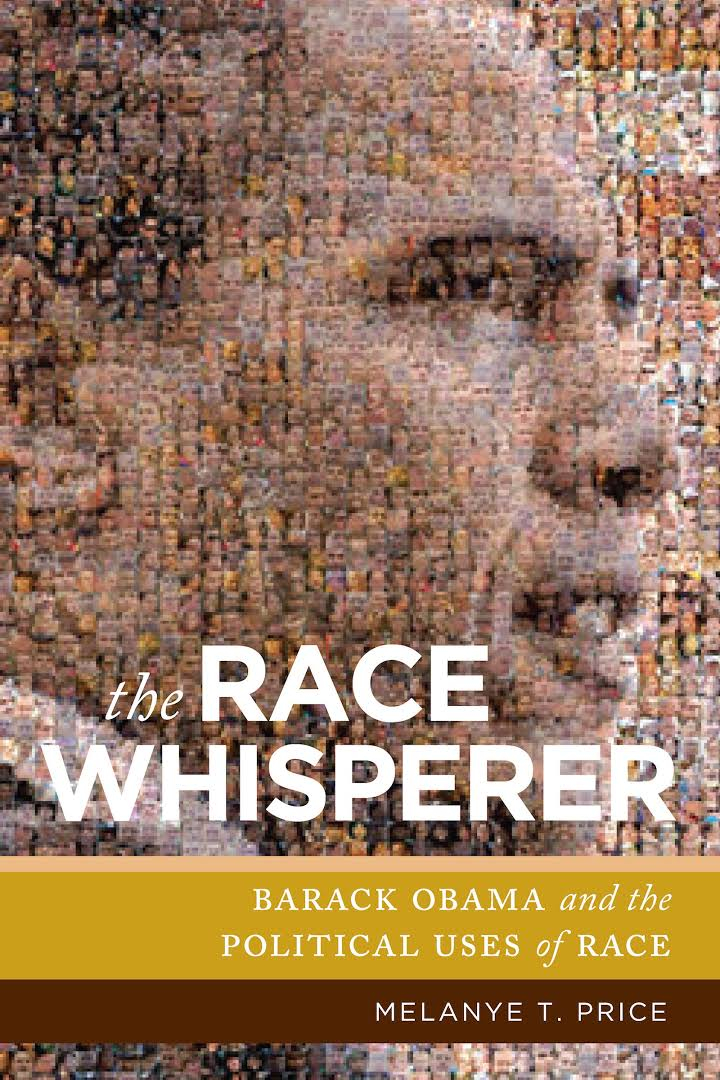Rutgers Professor Analyzes Obama’s Racial Rhetoric
‘Race Whisperer’ author, Melanye T. Price, explains how a triumphant moment in American history ignited our country’s racial tensions

Days after two more black men were fatally shot by police in Tulsa and Charlotte, we met with Melanye T. Price, professor of Africana Studies and Political Science at Rutgers University-New Brunswick’s School of Arts and Sciences to discuss the impact Barack Obama’s presidency has had on race relations in America.
Price’s new book The Race Whisperer: Barack Obama and the Political Uses of Race (New York University Press, 2016) analyzes Obama’s racial rhetoric and the way it is perceived by diverse racial audiences.
You write about the media’s intense scrutiny of Obama’s relationship with the black community. Was there an event that set that tone during his presidency?
Seven months into Obama’s presidency, Harvard University professor Henry Louis Gates Jr. is arrested on his own front porch because a woman said she saw someone who looked like he was breaking in. During a discussion about health care, a reporter asked Obama what he thought about Henry Louis Gates being arrested. He said, “I don’t know all the details, but I do know he was in his own house. I believe the police officer who arrested Gates acted stupidly.” Then for nearly a month when he is trying to force health care through, all we talk about is Barack Obama and the police and whether or not he is a racist. Glenn Beck calls him a racist and says he hates white people and white culture. We learned later that one of his senior staffers, Valerie Jarrett, persuaded him to walk back the comment. Ultimately after that he stops talking about race until Trayvon Martin. We go from 2009 to 2013, from the beginning of his first term to his second term. I argue in the book, that he figured out fast that when he talks about race nothing else gets done.
Did distancing himself from the conversation about racism and inequality change our national conversation about those topics?
He did not create this situation. He became a vehicle to discuss racial feelings of all kinds – racism, racial tolerance, and racial indifference – all of it. The historic nature of his presidency makes you pay attention to race. That’s when the problem starts, because then you get to see what your co-workers think about race, what your family, neighbors and church members think about race. If you actually want to deal with the question of race and break down stereotypes and work toward racial reconciliation, it’s a great thing to know what your neighbors think. If you don’t want to deal with race at all, then it’s probably wiser not to know because once you do it changes your daily interactions. But America isn’t really great on public racial reconciliation. We’re a stop talking about it kind of country. So it’s been a nightmare.

The first black president was never going to be a person who was controversial or militant or come out of a radical activist background. It had to be someone acceptable to blacks but someone whites could see themselves voting for. It’s white voters who stop black candidates from winning the presidency or statewide offices such as governor or senator because they represent the majority of voters in most states. He had to secure their votes by convincing them that he was worth the gamble. It seems simple but it’s not and the lack of blacks in the Senate or Governor’s office demonstrates how difficult it is.
In your book, you write that Obama’s mixed ethnicity helped him connect with a broad voting base. Why couldn’t he tap into it to push the conversation about race forward when he got into the White House?
His success has come because he is a person who is able to navigate different communities and find ways to come up with solutions that make those communities happy. It’s being a working class kid going Ivy League and a black kid raised in Hawaii. He’s constantly doing things where he is a fish out of water, and he thrives. If it worked for him before I think he thought it would work for him as president. It didn’t because he underestimated the willingness of Republicans to literally do nothing and shut the government down. They would hold democracy hostage rather than work with him. I believe it shocked him and was difficult for him to recover
The chasm between the black community and police has grown in the wake of multiple shooting deaths of black men and police officers. Was Obama successful in striking a balance between frustration with and respect for police and protestors in the memorial speech he gave for the five slain officers in Dallas?
I feel he struck a balance that made it simpler for him. But I also thought when he went to that memorial for those police officers in Dallas: How come he never showed up one time for one of those people who were shot by police? By 2013, 2014 he had nothing to lose. He’s never going to run for president or public office again. To go to any one of those funerals, he wouldn’t have lost anything. In the end, Barack Obama is a person who always believes at some level he can make people understand the basic humanity of black people by being the guy who shows up and does the right thing. We’ve watched him try to strike a balance between racial conservatives and people of color. What happens more often than not is he comes off looking like a person who can chastise black people when they are doing something wrong but won’t excoriate police and other vigilantes who shoot unarmed black people to the same degree. It has been a large disappointment for me and for many people watching the ways in which he has seemingly catered to law enforcement during their moments of tragedy and not attended to the legitimate fears and concerns about law enforcement by the black community.
It’s been nearly eight years since this country elected it’s first black president. Now we are in the midst of a presidential election where the Republican candidate was endorsed by a white supremacist. How did we get here?
People’s racial lines were drawn clearly with a black president. There’s a way in which particularly white working class men have felt displaced during the Obama administration. They are in jobs in fields that are dying. Making things for a living in America is a dying profession. People who are willing to work hard but are uneducated would make it into the middle class before, but that is nearly a pipe dream now. And then the most important symbol in your nation, the president, no longer looks like what it looked like before. So you are losing your house, your community is changing, your job is changing, the prospects for your children are changing, and who gets to be in charge is changing. That’s a lot of change. Hope and racial progress in America always has to be tempered by cautiousness, because we know historically it can be undone. And we know there are people working actively to undo it.
How do you think Obama’s message about racial in equality will change once he leaves office?
I think he is a person who wants to see people work together. He likes to hear lots of opinions and believes there is some sort of consensus out there that can make most people happy. I believe he’ll spend his time working toward efforts that build consensus around race. I believe he believes that strong fathers are an answer to black people’s problems, and I think he will work on issues that connect to that. I don’t think he’ll become some super radical when he leaves office.
For media inquiries, contact Lisa Intrabartola at 848-932-0554 or lintrabartola@ucm.rutgers.edu